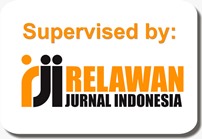EFFECTIVENESS IMPLEMENTATION OF THE VILLAGE SUSTAINABLE DEVELOPMENT GOALS (SDGS) PROGRAM IN INCREASING DECENT WORK AND ECONOMIC GROWTH AT KABUPATEN LOMBOK TIMUR
Abstract
The United Nations in September 2015, formulated that developed and developing countries must declare the SDGs, which is a global and national commitment to improve people's welfare. This research was conducted to determine the effectiveness of the implementation of the Sustainable Development Goals (SDGs) 8th goal program in East Lombok Regency by examining decent work and economic growth such as employment opportunities, human resource quality, and unemployment supported by the pre-employment card distribution program and vocational training center training. The research method used is descriptive qualitative research method, with data collection techniques of observation, interviews, questionnaires and documentation in 5 villages and 20 respondents taken based on purposive sampling techniques with Miles and Huberman data analysis techniques and processed using source triangulation techniques, triangulation techniques, and time triangulation. Based on the results of the study, there are 6 indicators used to determine the success of the program, namely program socialization, knowledge related to the program, program objectives, program success, target accuracy, and satisfaction related to the program, it is explained that in general the implementation of the SDGs program in increasing decent work and economic growth in East Lombok district is ineffective, because the village and community are not effective
Full Text:
PDFDOI: https://doi.org/10.31846/jae.v13i1.862
Refbacks
- There are currently no refbacks.

This work is licensed under a Creative Commons Attribution-NonCommercial-NoDerivatives 4.0 International License.
e-Jurnal Apresiasi Ekonnomi Indexed by:












